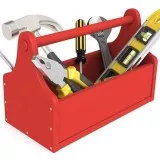Should You Hire a Contractor or Do It Yourself?
Should I hire a contractor or do it myself? Learn what are the pros and cons of hiring a contractor vs doing it yourself today.
What are the Top Reasons to Hire a Contractor?
Legal Requirements - You're prohibited by law to conduct certain types of home improvement and repair jobs without a license. These projects have to be carried out by licensed contractors.
The type of work requiring a license and permit will vary according to local state laws, but usually it includes jobs that may affect the structural integrity and safety of your property... such as demolishing walls, altering foundation walls/pillars, building additional stories or add-on structures such as a car port, barn or detached garage.
Better End Results - Unless you have outstanding DIY skills, chances are a proper contractor will do a better job than you. This is especially true for more complex (and dangerous) projects, such as rewiring an entire house or laying down gas pipes.
For large scale projects, experience does matter a lot... so it's best to leave to the professionals who will get it right the first time, then to experiment by yourself and possibly up end causing more damage.
Continuing on this point, many contractors will also give you a warranty on their work. So if anything breaks or goes wrong within the warranty period (usually 3 to 12 months after work completion), they will repair it for free or a minimal fee.
Save Time and Effort - Property improvement, maintenance and repairs can take a lot of time and effort. If you need work to be completed urgently (e.g. a landlord preparing a rental property for new tenants), then contractors and their team will be able to get the job done faster.
If you're holding a full time job or find repair jobs a hassle, then it makes sense to pay someone else to do for you. After all, the time you save can be better spent with friends and family (or even to work longer hours).
What are the Top Reasons to Do It Yourself?
Save Money - For most people, this is definitely the biggest benefit of going the do-it-yourself route. Provided that you don't make any costly mistakes, doing everything by yourself will cost 20% to 50% less vs paying for a contractor.
For simple repair and upgrading works that don't require specialized knowledge or tools, it makes sense for you to roll up your sleeves and get to work.
If you're on a tight budget, you can can cut down on contractor fees by offering to help out with unskilled tasks, such as trench-digging and after-work cleanup.
Interest and Satisfaction - While some property owners dread improvement and repair works, there are others who are more than happy to get their hands dirty in such work.
Property DIY is a popular hobby in many countries and there are many learning resources that you can turn to... including home improvement shows on TV, online tutorials and workshop seminars that you attend in person.
Besides the personal satisfaction that you can derive from DIY projects, you're also picking up valuable skills and experience that will benefit any property owner.
NEXT: How to Hire a Contractor - Checklist and Questions to Ask


